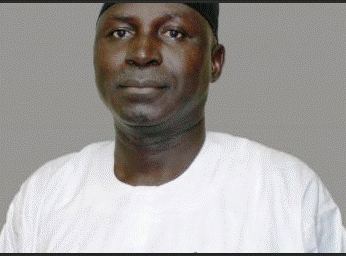A security expert, retired Group Capt. Usman Sadiq, has appealed to all levels of government to condemn attacks and violence against journalists and media workers, as outlined by the United Nations.
Sadiq, Director, Security Services, Federal Airports Authority of Nigeria (FAAN), made the appeal during the 7th Safety and Security Watch Symposium on Wednesday in Lagos.
The symposium, held in commemoration of the International Day to End Impunity for Crimes against Journalists, was themed, ‘Digital Challenges to the Safety of Women Journalists in Nigeria.’
The day, initiated by the United Nations General Assembly, is celebrated annually on Nov. 2 to implement definite measures countering the present culture of impunity against journalists and media workers globally.
Sadiq said that legal instruments to domesticate the UN resolution on safety of journalists and the issue of impunity should be domesticated in Nigeria.
He noted that while all journalists are faced with increasing digital threats and challenges, the dangers and constraints affecting women journalists are peculiar and daunting.
This, according to him, is due to their high vulnerability to online harassment and other forms of attack.
“In accordance with the EU Human Rights Guidelines on Freedom of Expression Online and Offline, the safety and security of journalists has three principal components: physical, digital, and psychosocial – all of which must be fulfilled for safety to be guaranteed,”
He said.
He noted that a general threat trend against journalism in most nations was characterised by killings, attacks, execution, torture, enforced disappearance, violence or intimidation against any individual exercising his right to freedom of expression, as well as attacks on media outlets.
According to him, perpetrators who harass, threaten and attack media actors include public officials, political leaders and their supporters, and demonstrators.
He also listed religious groups, militias/armed groups, criminal organisations and trolls, intelligence agencies, among others.
Sadiq appealed to the Nigeria Union Journalists (NUJ) and other media advocacy organisations to continue to raise awareness to the evolving threats that journalists face in a digitised work environment.
He advised the union to provide regular training for journalists and others on best practices in digital security and create a learning culture of strong information security to reduce risks.
Sadiq stressed that journalists merit adequate protection and should be free to provide opportunities for the expression of opinions and information.
“They should not have to work in fear of giving voice to the voiceless,”
He said.
Also, SP Benjamin Hundeyin, Police Public Relations Officer (PPRO), Lagos Police Command, advised journalists to always have a means of identification while on duty.
He said this was to differentiate them from miscreants and protect them from attack.
Hundeyin, represented by DSP Stephen Kuti, said the police command had a cordial and robust relationship with the media and appreciated their doggedness to duty.
Similarly, Dr Chinyere Amaechi, Publisher, Safety and Security Watch, said the role of the Nigerian press in its return to democracy and sustaining it demands collective efforts to ensure the safety of journalists.
Amaechi, Convener of the symposium,
said that findings in the last 10 years of the celebration showed an increase in online crimes against female journalists, hence the focus of its theme.
Amaechi was represented by Nwanma Ogidi, Publisher, Waka About Africa.

















Discussion about this post